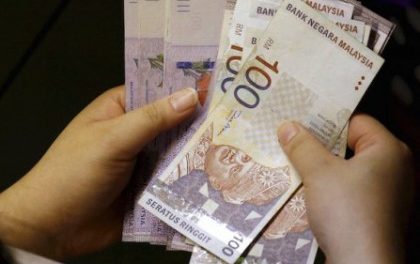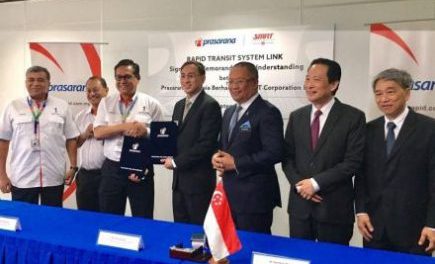Malaysia tops US survey for ‘Best Countries to Invest In’
Malaysia is the front-runner for best countries to invest in this year, scoring at least 30 points more than any other country in the list. According to the “2017 Best Countries to Invest In” survey by US-based BAV Consulting and the Wharton School of the University of Pennsylvania, Malaysia was “clear front-runner” in the ranking, ahead of Singapore (2nd), India (6th), Thailand (7th) and Indonesia (10th). Countries are ranked based on eight equally-weighted attributes: corruption, dynamism, economic stability, entrepreneurialism, favourable tax environment, innovation, skilled labour force and technological expertise. Malaysia is one of the top recipients of foreign direct investment, and its pro-business government offers a wide range of incentives to investors. Other countries at the top of the list, like Singapore and India, typically have a younger, educated population. Four factors that make a country unique and motivate investment were identified in the report: natural resources, markets, efficiency and strategic assets like technologies or brands. (The Star Online)
Penang developers plan mega projects
The economic climate has not deterred developers from planning multi-billion ringgit projects in Penang, with property developers like SP Setia, Eco World, Hunza Properties, Ideal Properties and Aspen Vision planning multi-billion ringgit schemes for launch in the near future. Local authorities had recently increased the density per acre to 128 units from the previous 87 units. Developers welcome the move, as the increase in density will enable developers to have better land use by reducing the cost per unit, thus improving affordability. Property prices are expected to remain stable due to excess supply and the difficulty in obtaining bank loans. (The Star Online)
Putrajaya urged to reintroduce DIBS for affordable homes
Penang Chief Minister Lim Guan Eng has urged Putrajaya to reintroduce the developer interest bearing scheme (DIBS) for houses below RM300,000, claiming that many low-cost and low medium cost housing were not sold because buyers could not get loans for it. He said the scheme should be reintroduced, or Bank Negara should consider relaxing stringent guidelines for housing loans below RM300,000 to alleviate the burden on first time house buyers. The inability by house buyers to obtain loans meant these low cost units will be unsold and remain vacant. (Malay Mail Online)
JPPP initiative gets thumbs up from Johor Rehda
The Johor Real Estate and Housing Developers Association (Rehda) has welcomed the setting up of the Housing Advisory Panel committee (JPPP) by the state government. The advisory panel would address housing and land-related matters in the state, and would include former Housing and Local Government committee chairman Datuk Ahmad Zahri Jamil and state secretary Datuk Obet Tawil. The panel would be a transparent approach to reduce mishandling and enable efficiency, as well as obtain feedback from all interested parties to benefit the public. Issues like matching demand with supply, updating applicants list and approval of any application for release from restriction should be dealt with by the panel. (The Star Online)
CBRE|WTW: Property outlook cautious but not bleak
While most local property developers will be taking a cautious stance this year, industry experts are certain that the property sector will be anything but bleak in 2017. With the high cost of living, CBRE|WTW managing director Foo Gee Jen says there is rising demand for affordable housing, which will create genuine demand and lead the market. The market is expected to cool down and stabilise, with prices therefore becoming more realistic. Areas with good transportation connectivity, such as near MRT/LRT and highways, will continue to be hotspots, wile property investment will remain more popular than other forms of investment. However, 2017 will still be challenging year for developers due to the overall weak ringgit, low crude oil and commodity prices coupled with geo-political issues worldwide. (The Star Online)
Government to build 200 transit homes in Tawau
The government will build 200 transit houses at Balung to provide temporary shelter for disaster victims including those affected in recent fires in Tawau. The transit houses expected to be ready next year would provide comfortable living space for the victims before they get their own houses. RM5 million has been allocated to build the transit homes, and will take a year to complete. It will be located adjacent to the Sri Balung Hardcore Poor People’s Housing Project (PPRT). (Malay Mail Online)
Singapore jumps after housing duty cut, Malaysia flat
Singapore shares advanced Friday as real estate stocks surged after the government lowered stamp duties imposed on the sale of residential properties. The duty, currently payable if the house is sold within four years of purchase, will now be applicable only on the sale of houses before three years. Rules related to the total debt servicing ratios were also relaxed. Caution ahead of a U.S. employment report and extended losses in crude oil prices weighed on Malaysian equities, with the FTSE Bursa Malaysia KLCI ending almost flat. (Nikkei Asian Review)
US investment in Malaysia may grow further
The level of US investments in Malaysia will be maintained or grow further, says US ambassador Kamala Shirin Lakhdhir. US companies in Malaysia made independent decisions based on the business environment and needs of the supply chain. Many US companies have been in Malaysia for decades and are still around because the Malaysian government has been very supportive in facilitating their investments. She said the feedback received from the US companies so far had been positive. “The US investments here will either be maintained or grow further,” she added. (The Star Online)





